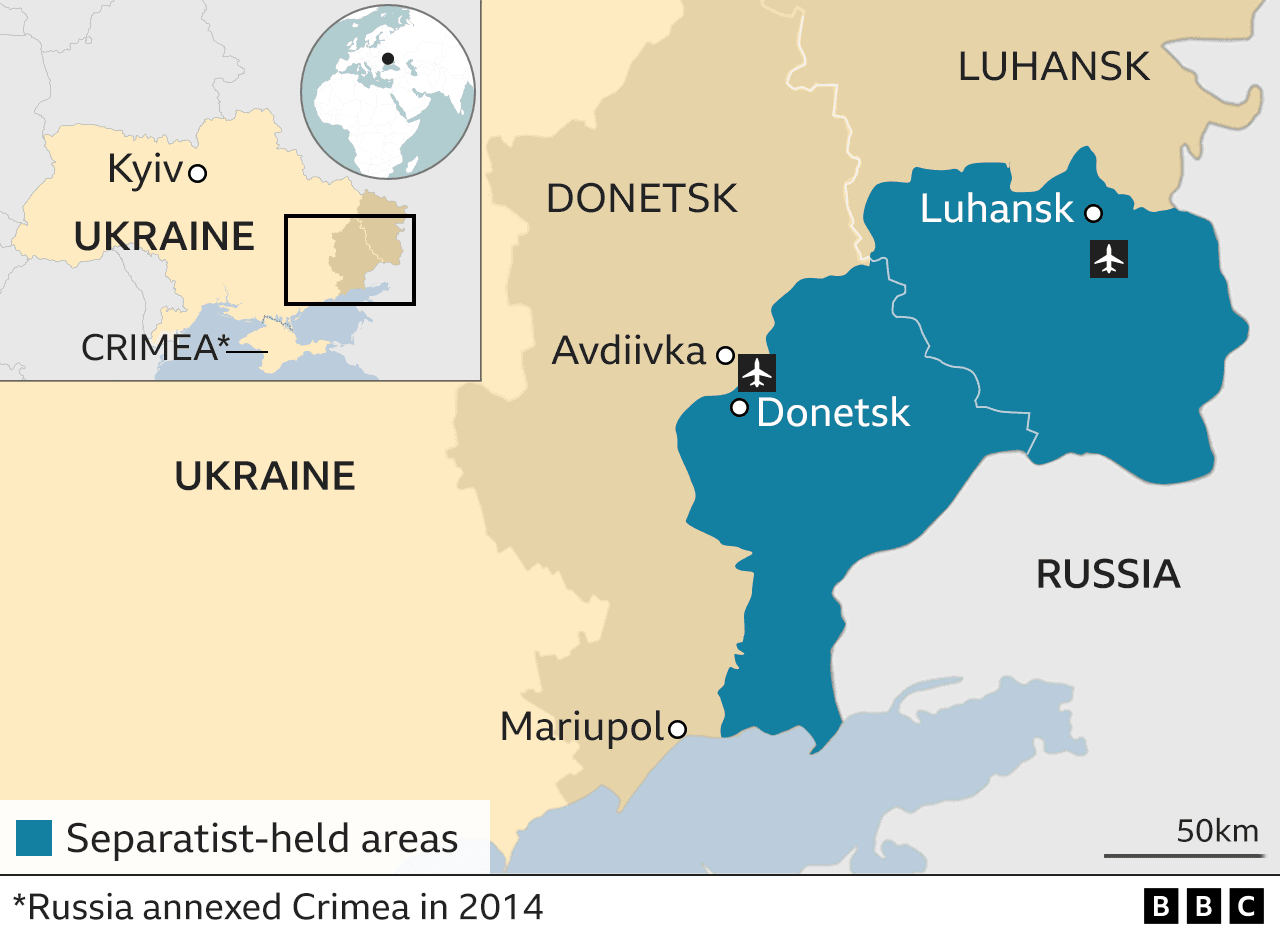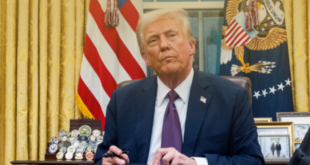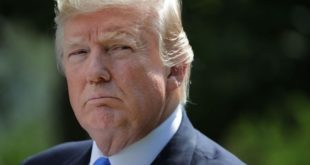Germany’s foreign minister has accused Russia of putting peace at risk with Cold War-like diplomacy, urging Moscow to take “serious steps towards de-escalation” of the Ukraine crisis.
It comes after the US president warned Russia could be about to stage a justification to invade Ukraine.
Joe Biden said military action could begin imminently but stressed that a diplomatic solution was still possible.
Russia said the claims were “baseless” and accused the US of stoking tensions.
Moscow says it is conducting military drills and says some troops have been moved back to their permanent bases in recent days. Western powers say they have seen no evidence of a withdrawal.
On Friday, German Foreign Minister Annalena Baerbock became the latest senior Western politician to voice concerns over Russia’s massive build-up of military personnel and equipment near its border with Ukraine and in Belarus, a Russian ally – effectively encircling Ukraine on three sides.
In a statement released ahead of the annual Munich Security Conference, where world leaders will meet for three days from Friday, she warned Russia was “challenging fundamental principles of the European peace order” with its “unprecedented deployment of troops” and “Cold War demands”.
Her comments refer to a series of demands Russia has made over European security, which seek to limit Western military power in countries Russia sees as within its own sphere of influence.
The West rejects the idea that Russia has a right to influence the foreign policy of countries close to its borders, as the Soviet Union did during the Cold War.
The Cold War was the post-war period of the 20th Century when the rivalry between the West and the Soviet Union brought two global superpowers to the brink of nuclear war.
Ms Baerbock called for diplomacy to continue, saying “even tiny steps towards peace are better than big steps towards war”.
Joe Biden warned on Thursday that Russia could be about to engage in a false flag operation which would give it an excuse to invade Ukraine.
A false flag is a fabricated attack a country stages against its own interests in order to justify a retaliation. Russia denies having any such plans.
Later, US Secretary of State Antony Blinken gave more details to the United Nations Security Council of what such a move could look like.
He said it was not clear what form a pretext for an attack could take, but that possibilities include “a fabricated so-called terrorist bombing inside Russia, the invented discovery of a mass grave, a staged drone strike against civilians, or a fake – even a real – attack using chemical weapons.”
In the aftermath of such an incident, Mr Blinken said Russia’s government would likely “theatrically convene” an emergency meeting about protecting ethnic Russians in Ukraine – and Russian missiles and bombs would begin striking Ukrainian targets, alongside cyber-attacks.
The US has not provided evidence for the allegation, and Mr Blinken acknowledged that some people may question the claims. “But let me be clear. I am here today not to start a war but to prevent one,” he said.
The concerns were echoed by other Western leaders. Nato Secretary General Jens Stoltenberg warned of “a pretext for an armed attack”, while UK Foreign Secretary Liz Truss and Prime Minister Boris Johnson alleged that a false flag operation was being planned.
Ceasefire breached
Meanwhile, Ukrainian forces and Russia-backed rebels in the country’s east continued to accuse each other of shelling and other ceasefire violations on Friday.
Such breaks in the area’s years-long ceasefire are not uncommon. Each side blamed the other for Thursday’s violence.
Ukrainian officials accused Russia-backed separatists of striking a nursery in the town of Stanytsia Luhanska, smashing through a wall into a children’s music room. Three adults – but no children – were injured.
Russia-backed rebels, meanwhile, claimed Ukrainian forces had shelled a number of locations under rebel control and accused them of escalating the conflict.

‘Diplomacy is working’
On Thursday, Russia sent a formal response to US proposals for negotiation in the crisis which both offered a potential route to diplomacy, and threatened further action.
In the document, Russia said it was open to discussions about inspections of missile sites on both sides but said the US had failed to address its main security concerns about the expansion of Nato near its border.
Russia said that if that issue was not dealt with, “military-technical means” would be deployed in response – though it remains unclear what that could amount to.
Despite such concerns, Ukraine’s Foreign Minister Dmytro Kuleba earlier said that “diplomacy is working”.
“We can never say for sure what happens tomorrow, but today we do our utmost” to maintain peace, he said. “We’re very much ready for any situation.”
BBC.COM
 Home Of Ghana News Ghana News, Entertainment And More
Home Of Ghana News Ghana News, Entertainment And More





